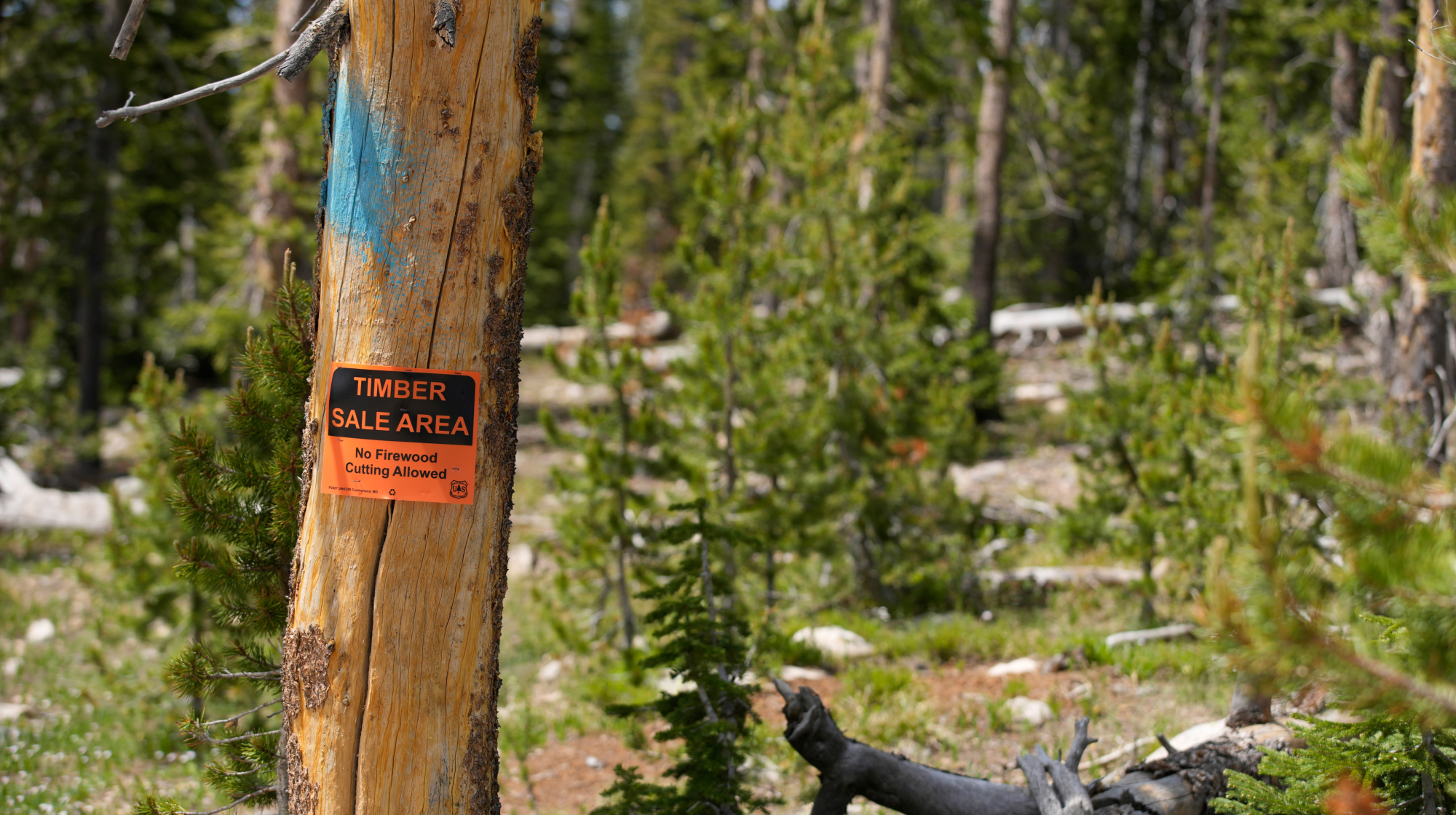Controversial GOP plan to sell millions of federal acres hits major roadblock
Republican Sen. Mike Lee says he'll revisit legislation to sell millions of acres of federally held land to create 'freedom zones' of single family homes


Utah Republican Sen. Mike Lee's plan to peddle millions of acres of federally held land was dealt an ignominious blow this week when the Senate parliamentarian ruled that his proposed measure violated legislative rules and could not be included in President Donald Trump's "One Big, Beautiful Bill." Lee has since revised his proposal, casting blame on a "massive misinformation campaign" by liberals. Claims of partisan trickery notwithstanding, his plan to reappropriate huge swaths of federal land has irked a number of the senator's fellow Republicans.
A push to address 'housing-related needs'
Past efforts to sell large parcels of government-owned land have "enraged conservationists" as well as proven "contentious with some Republicans," The New York Times said at the start of Lee's push earlier this month. While rising housing costs have led some Democrats to support "limited efforts to allow more construction on public lands," Lee's proposal is a "fire sale" that would take a "sledgehammer to our national public lands," said Senator Martin Heinrich (D-N.M.) to the paper.
Although Lee has claimed his plan will "make room" for housing development, Axios said, the language of his bill didn't require any of the homes built on the land in question to "meet any standard for affordability." Lee's initial bill had "no requirements for affordability or density" and provided "no significant guardrails" to prevent the land being used for "trophy homes, pricey vacation spots, exclusive golf communities or other developments," said the Center for American Progress. Housing advocates have also noted that much of the government land is not "universally suitable for affordable housing" to begin with, The Associated Press said.
The Week
Escape your echo chamber. Get the facts behind the news, plus analysis from multiple perspectives.

Sign up for The Week's Free Newsletters
From our morning news briefing to a weekly Good News Newsletter, get the best of The Week delivered directly to your inbox.
From our morning news briefing to a weekly Good News Newsletter, get the best of The Week delivered directly to your inbox.
Under a revised version of Lee's plan, territory maintained by the Forest Service will be "off the table" for development, as would a "significant chunk" of Bureau of Land Management property, The Salt Lake Tribune said. Instead, Lee's new proposal would only include land "within five miles of population centers" set aside for "FREEDOM ZONES to ensure these lands benefit AMERICAN FAMILIES," the senator said on X.
Housing prices are crushing families and keeping young Americans from living where they grew up. We need to change that.Thanks to YOU—the AMERICAN PEOPLE—here’s what I plan to do:1. REMOVE ALL Forest Service land. We are NOT selling off our forests.2. SIGNIFICANTLY REDUCE…June 24, 2025
But Lee acknowledged in his post that the same Senate parliamentary rule that excluded his initial effort could apply to his revised draft. "I'm doing everything I can to support President Trump and move this forward," Lee said.
Bipartisan pushback and a 'significant win' for public lands
Lee's optimism isn't shared by a number of his fellow Republicans. Many "feel like this is overshadowing the president's agenda," said conservative environmental activist Benji Backer to E&E News. Ultimately, Lee's "most formidable opponents" on the proposal "had been his own colleagues" in the Senate, including Steve Daines and Tim Sheehy of Montana, and Jim Risch and Mike Crapo of Idaho, E&E said. Perhaps most surprising has been the staunch opposition of arch-conservative Montana Rep. Ryan Zinke, a former interior secretary, who spoke out emphatically against land transfers earlier this year. "I do not support the widespread sale or transfer of public lands," Zinke said in a press release after a similar House proposal last month. "Once the land is sold, we will never get it back."
Lee's "ideological crusade against public lands" is not a "serious proposal to raise revenue for the federal government," said Center for Western Priorities Executive Director Jennifer Rokala in a statement. Accordingly, defeating his effort is a "significant win for public lands."
A free daily email with the biggest news stories of the day – and the best features from TheWeek.com
Rafi Schwartz has worked as a politics writer at The Week since 2022, where he covers elections, Congress and the White House. He was previously a contributing writer with Mic focusing largely on politics, a senior writer with Splinter News, a staff writer for Fusion's news lab, and the managing editor of Heeb Magazine, a Jewish life and culture publication. Rafi's work has appeared in Rolling Stone, GOOD and The Forward, among others.
-
 Which way will Trump go on Iran?
Which way will Trump go on Iran?Today’s Big Question Diplomatic talks set to be held in Turkey on Friday, but failure to reach an agreement could have ‘terrible’ global ramifications
-
 High Court action over Cape Verde tourist deaths
High Court action over Cape Verde tourist deathsThe Explainer Holidaymakers sue TUI after gastric illness outbreaks linked to six British deaths
-
 The battle over the Irish language in Northern Ireland
The battle over the Irish language in Northern IrelandUnder the Radar Popularity is soaring across Northern Ireland, but dual-language sign policies agitate division as unionists accuse nationalists of cultural erosion
-
 Gavin Newsom and Dr. Oz feud over fraud allegations
Gavin Newsom and Dr. Oz feud over fraud allegationsIn the Spotlight Newsom called Oz’s behavior ‘baseless and racist’
-
 Businesses are caught in the middle of ICE activities
Businesses are caught in the middle of ICE activitiesIn the Spotlight Many companies are being forced to choose a side in the ICE debate
-
 Venezuela’s Trump-shaped power vacuum
Venezuela’s Trump-shaped power vacuumIN THE SPOTLIGHT The American abduction of Venezuelan President Nicolás Maduro has thrust South America’s biggest oil-producing state into uncharted geopolitical waters
-
 Wave of cancellations prompts Kennedy Center turmoil
Wave of cancellations prompts Kennedy Center turmoilIN THE SPOTLIGHT Accusations and allegations fly as artists begin backing off their regularly scheduled appearances
-
 The MAGA civil war takes center stage at the Turning Point USA conference
The MAGA civil war takes center stage at the Turning Point USA conferenceIN THE SPOTLIGHT ‘Americafest 2025’ was a who’s who of right-wing heavyweights eager to settle scores and lay claim to the future of MAGA
-
 Trump aims to take down ‘global mothership’ of climate science
Trump aims to take down ‘global mothership’ of climate scienceIN THE SPOTLIGHT By moving to dismantle Colorado’s National Center for Atmospheric Research, the White House says it is targeting ‘climate alarmism’
-
 DOJ targets ‘disparate impact’ avenues of discrimination protection
DOJ targets ‘disparate impact’ avenues of discrimination protectionIN THE SPOTLIGHT By focusing solely on ‘intentional discrimination,’ the Justice Department risks allowing more subtle forms of bias to proliferate
-
 Homeland Security Secretary Kristi Noem might not be long for Trumpland
Homeland Security Secretary Kristi Noem might not be long for TrumplandIN THE SPOTLIGHT She has been one of the most visible and vocal architects of Trump’s anti-immigration efforts, even as her own star risks fading
